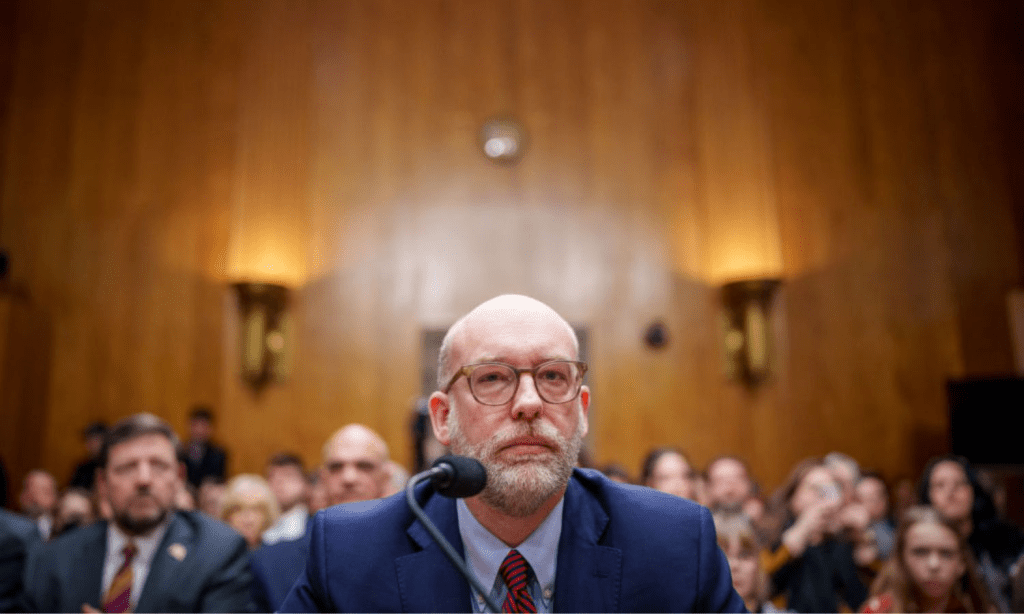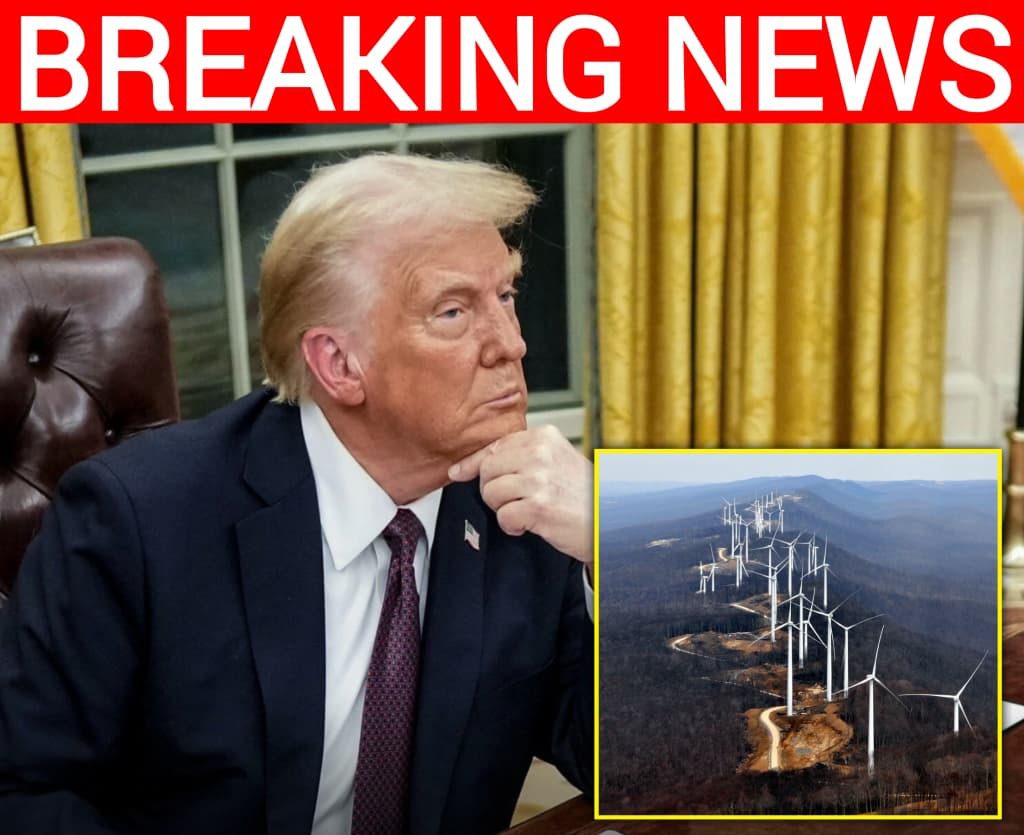Russ Vought Confirms Trump Administration Cancels $8 Billion in Green Energy Funding, Targeting Multiple States During Schumer Shutdown
The political standoff in Washington has just escalated with a decision that is already sending shockwaves across the country. OMB Director Russ Vought announced that the Trump administration has canceled nearly eight billion dollars in green energy funding, citing the ongoing government shutdown and a determination to halt what they describe as wasteful programs tied to the left’s climate agenda. The move is directly connected to President Trump’s early directives in 2025, where he ordered a sweeping pause on climate-related disbursements under the Inflation Reduction Act, totaling more than thirteen billion dollars. Now, with this latest action, that pause has grown into a full-scale cancellation that is being felt in blue states across the map.

The list of states losing funding reads like a roll call of Democratic strongholds: California, New York, Massachusetts, Washington, Oregon, New Jersey, and many more. Altogether, nearly twenty states stand to lose money that had been allocated for renewable energy projects, wind power installations, and other environmental initiatives. For these states, the cancellation represents a major setback, as many of the projects were already in early stages of planning or had commitments tied to future federal dollars.

Russ Vought explained in his announcement that the funding was being cut to “take full advantage of the shutdown” and to ensure that taxpayer money was not being used to promote programs built on what he described as unconstitutional or misguided priorities. It was a blunt statement, delivered in Vought’s characteristic style, and it framed the cancellation not only as a budgetary decision but as a political one. For critics, this is evidence of the administration using the shutdown as leverage in a larger fight over the role of government in climate policy.
The timing could not be more significant. The shutdown, which began at midnight on October 1 after negotiations collapsed in Congress, has already put federal agencies under strain. By moving to cancel funds during this moment, the administration has ensured maximum visibility and maximum impact. Environmental advocates are furious, warning that halting billions in funding will stall progress on renewable energy goals at a time when climate policy is already fragile. State leaders in places like California and New York have vowed to challenge the decision, with some hinting at potential lawsuits to try to restore the canceled funds.

On the other side, supporters of the move are celebrating it as a long-overdue correction. They argue that too much federal money has been steered into programs that they see as bloated, unaccountable, or tied to political agendas rather than practical results. For them, this is not just about dollars but about reshaping priorities away from climate spending and back toward what they describe as core infrastructure and national security needs.
What makes this decision stand out is that it revives a rarely used kind of budget power known as impoundment authority. While the Impoundment Control Act of 1974 was meant to limit a president’s ability to withhold congressionally approved spending, the Trump administration has been testing those limits throughout this shutdown, using OMB to slow or block money tied to programs they oppose. Experts say that the eight billion dollar cancellation could end up in court, just like earlier funding disputes did, and that judges will ultimately determine how far this authority can go.
In the meantime, the impact is real. Communities that were preparing for renewable energy projects now face uncertainty. Companies involved in clean energy contracts may have to scale back or delay work. And for state governments, budgets are suddenly full of holes where federal dollars were expected. This is not just a Washington power play—it is something that will touch jobs, local economies, and long-term energy plans across the nation.
Whether seen as a bold stand or a reckless gamble, the cancellation underscores how high the stakes have become in the ongoing shutdown battle. Russ Vought and the administration have made clear that they are willing to use funding as a weapon in their political fights, and the eight billion dollar cut to green energy is proof of that strategy in action. What happens next could reshape not only the shutdown negotiations but the broader trajectory of American climate policy for years to come.



